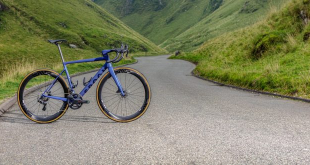A new report from the AA shows that it is becoming increasingly difficult to navigate city streets in a car although, as many previous studies have shown, this doesnt deter the mass of motorists.
Some will convert to two-wheels-no-engine because cycling is patently quicker than driving in many city centres but it will need government sticks rather than government carrots to achieve this in the kind of numbers that would make a noticeable difference to the bike trade. As was revealed in the recent Queens Speech, a transport bill is on the agenda for this session of parliament and the plan is for local authorities to be given greater powers to restrain cars in city centres. Most local authorities are rapidly putting cycling policies in place and, within ten years, many city centres will be totally closed to motorised traffic. Bikes and buses will then rule; just as they do in Holland (which went through the same banning the car pangs in the 1970s).
As motorists get picked on even more in the years to come (an inevitable outcome because the UK isnt big enough to survive the expected traffic growth rates and blasting new motorways through our green and pleasent land which is what the AA wants is not popular with Middle England) expect a lot more squealing from the AA and the RAC and other members of the road lobby.
The AA report makes for interesting reading because it says Britains long-suffering motorists get a raw deal compared to drivers in the rest of Europe. Per capita car ownership in Germany is far higher than in the UK yet the percentage of journeys carried out by cycle is still greater than the UK. Thats because even the poshest of company directors will get on a bike instead of using his brand new Merc if conditions dicate it. And thats what the government wants: people using their cars less, not getting rid of them altogether. Cycling is seen as part of the solution and, to their credit, both the AA and the RAC subscribe to this theory.
In the AA’s The Great British Motorist 2000 report there are a number of pro-bicycle comments including: "Many measures for vulnerable road users have come from mainland Europe…extensive infrastructure is in place in many countires and the Dutch have led the way with their version of ‘home zones’. Without similar investment it is unlikly that…the UK target of doubling cycle by 2002 (compared with 1996 levels) will be achieved…Britain needs to adopt the best of European design."
 BikeBiz Bicycle and cycling retail news
BikeBiz Bicycle and cycling retail news



